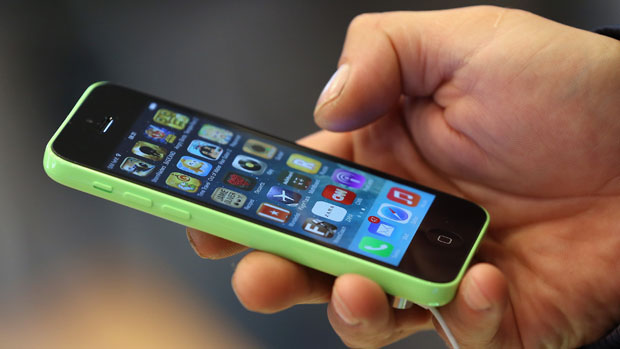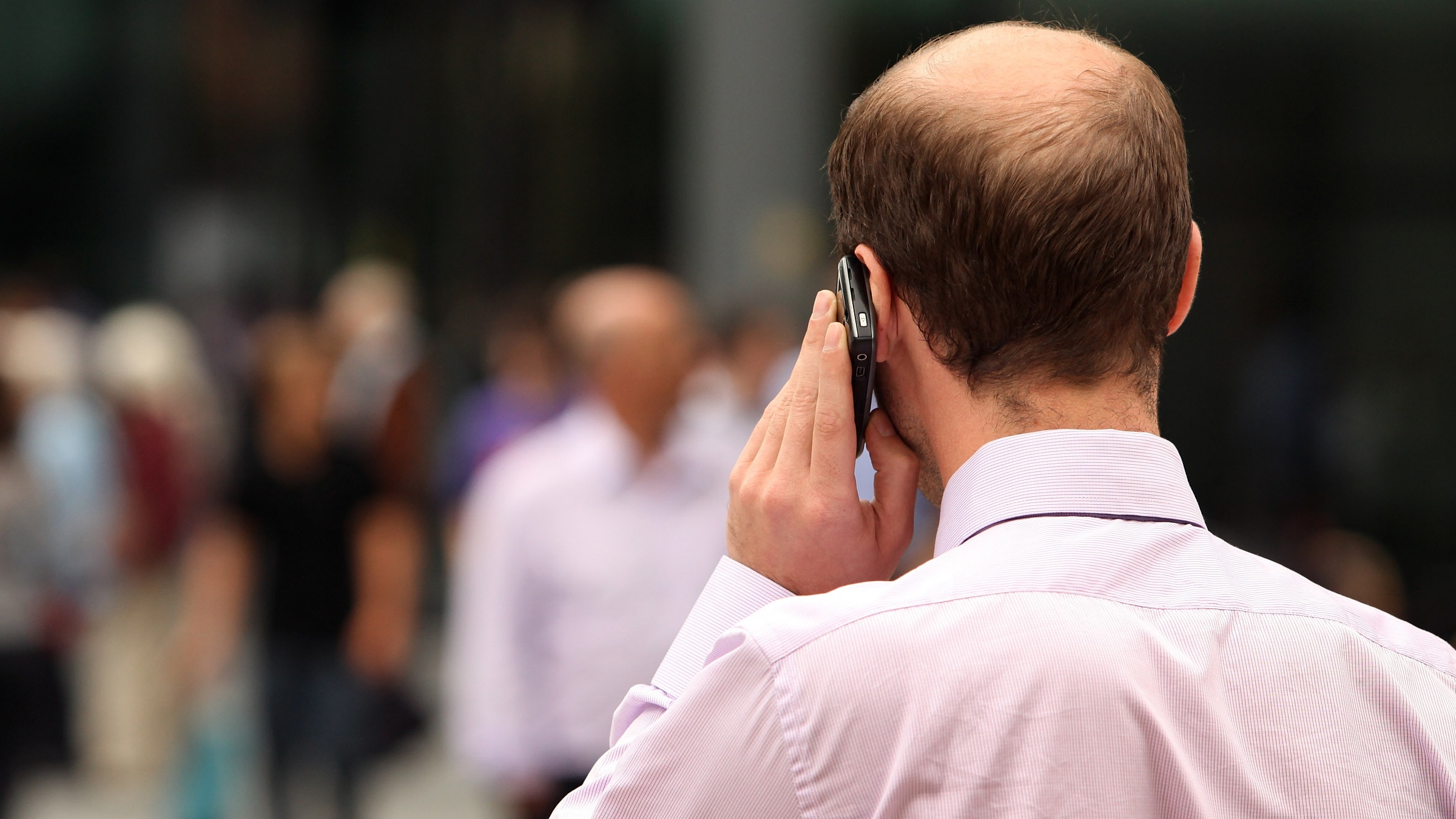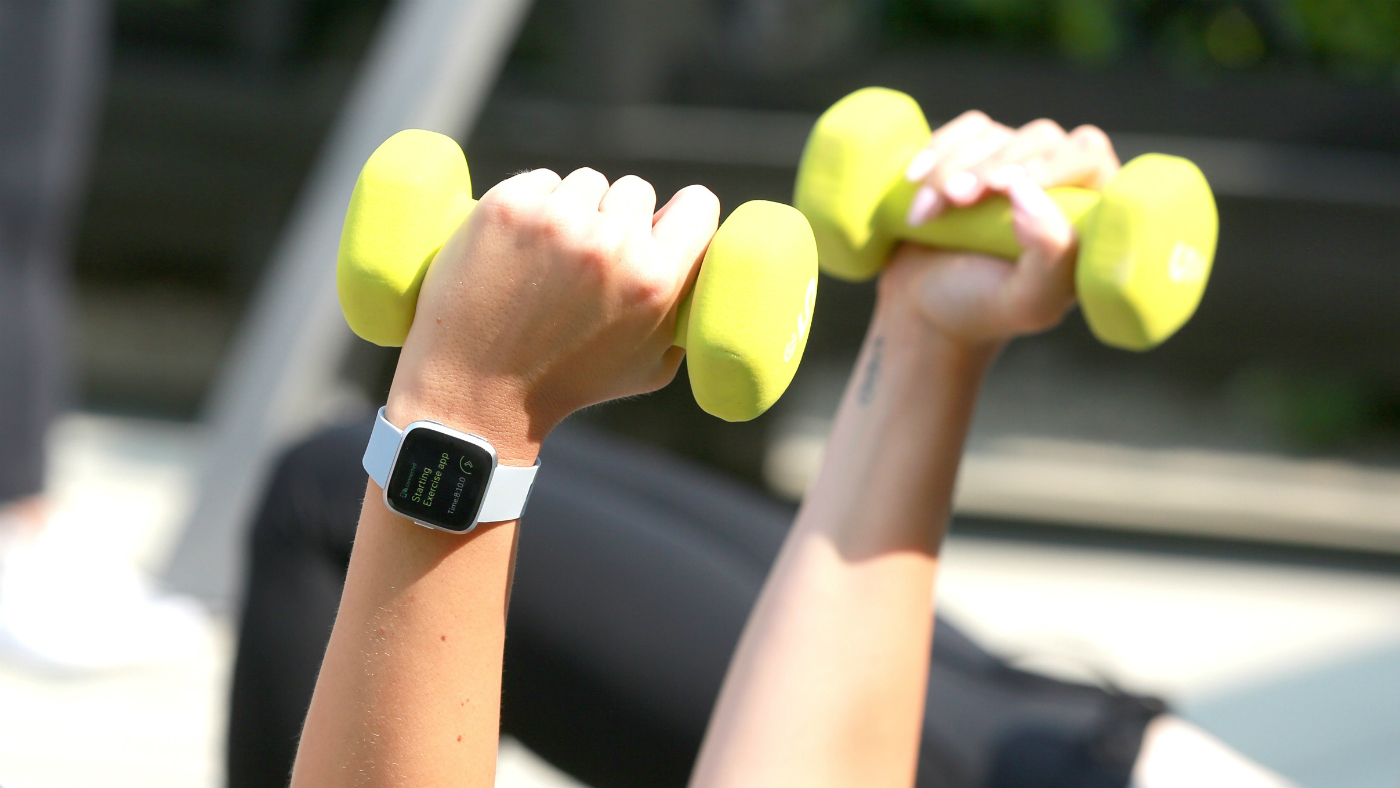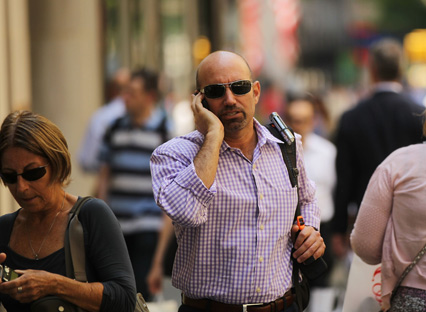Fact Check: The truth about mental health apps
The NHS recommends them but can the new technology really improve our mental well-being?

A free daily email with the biggest news stories of the day – and the best features from TheWeek.com
You are now subscribed
Your newsletter sign-up was successful
Mobile apps aimed at improving mental health are gaining popularity, with a growing number of people relying on them to help manage conditions such as depression and anxiety.
“This burgeoning industry may meet an important need,” writes science journalist Emily Anthes in the journal Nature. In the UK, one in four adults will experience mental illness, but most won’t get the help they need.
Health experts say apps have the potential to reach people who would otherwise not receive help, by removing barriers to treatment, and could also ease the burden on a mental health system that is under-resourced and underfunded. But is there any evidence that these apps work?
The Week
Escape your echo chamber. Get the facts behind the news, plus analysis from multiple perspectives.

Sign up for The Week's Free Newsletters
From our morning news briefing to a weekly Good News Newsletter, get the best of The Week delivered directly to your inbox.
From our morning news briefing to a weekly Good News Newsletter, get the best of The Week delivered directly to your inbox.
What do they claim to do?
From daily mood monitoring apps to ones that help guide users through panic attacks by using music and breathing techniques, there are thousands of different digital tools to choose from.
Some of the most popular apps include Moodscope, which offers users a daily to-do list and helps them track their emotions, and Headspace, which provides guided meditation sessions.
Others aim to tackle self-harm and suicidal feelings: Calm Harm offers a range of tasks to help users resist or manage the urge to self-harm, while Stay Alive is described as a “pocket suicide prevention resource”.
A free daily email with the biggest news stories of the day – and the best features from TheWeek.com
However, many of these apps come with the caveat that they should not replace traditional treatments, and carry messages advising users to contact a doctor if they are concerned about their mental health.
What do health experts say?
The NHS recommends a range of mental health apps to people with conditions such as depression and anxiety, but also stresses they should not be used as substitute for clinical care. “If you are worried about any aspects of your mental health, contact a professional,” it says on its own mental health app, Catch It.
Simon Leigh, a health economist at the University of Liverpool, says mental health apps have the potential to extend therapy to people who are currently unable or unwilling to access it.
“This could include the teenager who is too anxious or stigmatised to discuss his condition face-to-face, the Armed Forces serviceman who needs anonymity, or the single mother who struggles to schedule an appointment around her childcare and work commitments,” he writes on The Conversation.
The US National Institute for Mental Health (NIMH) says that new technologies may also prove more appealing than traditional treatment methods and can encourage clients to continue therapy.
But other experts warn that it is difficult for users to know if they are receiving an adequate level of care, as the vast majority of mental health apps are unregulated and untested.
“If you type in ‘depression’, it’s hard to know if the apps that you get back are high quality; if they work, if they’re even safe to use,” says Dr John Torous, a psychiatrist at Harvard Medical School, who chairs the American Psychiatric Association’s Smartphone App Evaluation Task Force. “Right now, it almost feels like the Wild West of healthcare.”
Is there evidence that the apps work?
The vast majority of mental health apps do not have peer-reviewed research to support their claims, says NIMH. “One reason is that testing is a slow process and technology evolves quickly - by the time an app has been put through rigorous scientific testing, the original technology may be outdated,” its website says.
Much of the research into mental health apps “has been limited to pilot studies, and randomised trials tend to be small and unreplicated”, says Emily Anthes, adding that many studies have been conducted by the apps’ own developers, rather than by independent researchers.
Of the 14 depression and anxiety apps listed on the NHS library in 2015, only four provided any evidence of patient-reported outcomes to substantiate claims of effectiveness, according to a review in the British Medical Journal by Simon Leigh and Steve Flatt, from the Psychological Therapies Unit in Liverpool.
“Fortunately, not all apps are created equal, with some demonstrating significant patient benefits,” say Leigh and Flatt. One NHS-accredited app that the pair reviewed boasted recovery rates of 58% - 8% higher than national targets.
Apps that are supported by a mental health practitioner are, on average, more than twice as effective as those developed without professional expertise, their research shows.
There are other ways for users to make sure they choose an effective app, according to NIMH, including asking a trusted healthcare provider for a recommendation and checking to see if it is based on a treatment that has been tested, such as cognitive behaviour therapy.
Who is right?
At present, the efficacy of most mental health apps appears to be largely anecdotal, and further studies are needed to determine their clinical benefits.
While these digital tools offer valuable support to some people, they should be used as a complimentary treatment rather than in isolation, especially for people diagnosed with acute mental illness.
If you are in crisis and need immediate mental health support, please contact the Samaritans free on 116 123.
-
 What are the best investments for beginners?
What are the best investments for beginners?The Explainer Stocks and ETFs and bonds, oh my
-
 What to know before filing your own taxes for the first time
What to know before filing your own taxes for the first timethe explainer Tackle this financial milestone with confidence
-
 The biggest box office flops of the 21st century
The biggest box office flops of the 21st centuryin depth Unnecessary remakes and turgid, expensive CGI-fests highlight this list of these most notorious box-office losers
-
 Fact check: behind the 5G conspiracy theories
Fact check: behind the 5G conspiracy theoriesIn Depth Scientists dismiss any link between mobile technology and coronavirus pandemic
-
 Fact check: do fitness trackers help you lose weight?
Fact check: do fitness trackers help you lose weight?In Depth The Week examines whether wearable tech really can aid slimmers
-
 Fact check: do fertility apps work?
Fact check: do fertility apps work?In Depth Advert claiming that Natural Cycles contraceptive app is ‘highly accurate’ banned by UK watchdog
-
 Fact check: do mobile phones cause cancer?
Fact check: do mobile phones cause cancer?In Depth The Week looks at the conflicting evidence and asks whether a scientific consensus can be reached